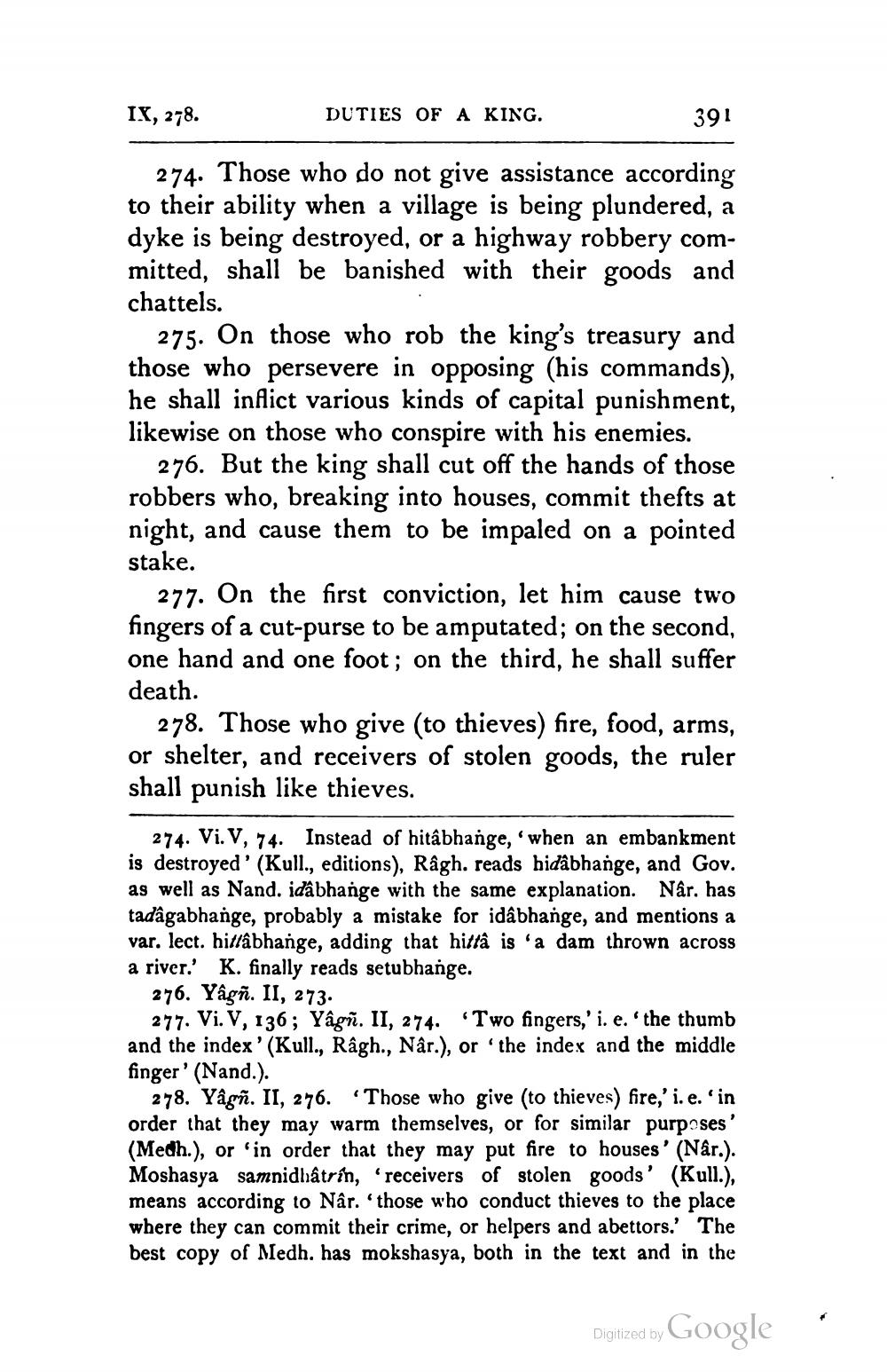________________
IX, 278.
DUTIES OF A KING.
391
274. Those who do not give assistance according to their ability when a village is being plundered, a dyke is being destroyed, or a highway robbery committed, shall be banished with their goods and chattels
275. On those who rob the king's treasury and those who persevere in opposing (his commands), he shall in Aict various kinds of capital punishment, likewise on those who conspire with his enemies.
276. But the king shall cut off the hands of those robbers who, breaking into houses, commit thefts at night, and cause them to be impaled on a pointed stake.
277. On the first conviction, let him cause two fingers of a cut-purse to be amputated; on the second, one hand and one foot; on the third, he shall suffer death.
278. Those who give (to thieves) fire, food, arms, or shelter, and receivers of stolen goods, the ruler shall punish like thieves.
274. Vi. V, 74. Instead of hitâbhange, 'when an embankment is destroyed' (Kull., editions), Râgh. reads hidâbhange, and Gov. as well as Nand. idâbhange with the same explanation. Når. has tadâgabhange, probably a mistake for idâbhange, and mentions a var. lect. hitlâbhange, adding that hitta is 'a dam thrown across a river.' K. finally reads setubhange.
276. Yagñ. II, 273.
277. Vi. V, 136; Yâgñ. II, 274. "Two fingers,' i. e. 'the thumb and the index'(Kull., Râgh., Nâr.), or the index and the middle finger' (Nand.).
278. Ya gñ. II, 276. Those who give (to thieves) fire,' i.e. 'in order that they may warm themselves, or for similar purposes' (Medh.), or 'in order that they may put fire to houses' (Nár.). Moshasya samnidhâtrín, receivers of stolen goods' (Kull.), means according to Nár. 'those who conduct thieves to the place where they can commit their crime, or helpers and abettors.' The best copy of Medh. has mokshasya, both in the text and in the
Digitized by Google




